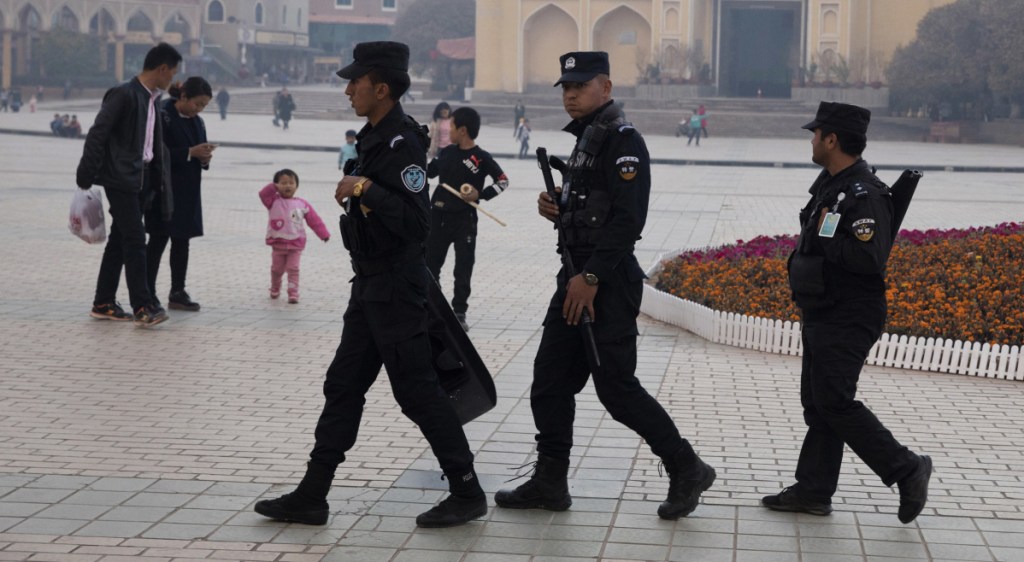BEIJING — China on Tuesday characterized its mass internment of Muslims as a push to bring into the “modern, civilized” world a destitute people who are easily led astray – a depiction that analysts said bore troubling colonial overtones.
The report is the ruling Communist Party’s latest effort to defend its extrajudicial detention of Central Asian Muslim minorities against mounting criticism.
China’s resistance to Western pressure over the camps highlights its growing confidence under President Xi Jinping, who has offered Beijing’s authoritarian system as a model for other countries.
About 1 million Uighurs, Kazakhs and other minorities have been arbitrarily detained in mass internment camps in China’s far west Xinjiang region, according to estimates by a U.N. panel. Former detainees say they were forced to disavow their Islamic beliefs in the camps, while children of detainees are being placed in dozens of orphanages across the region. The report by the official Xinhua News Agency indicated that key to the party’s vision in Xinjiang is the assimilation of the indigenous Central Asian ethnic minorities into Han Chinese society – and in turn, a “modern” lifestyle.
Xinjiang Gov. Shohrat Zakir said the authorities were providing people with lessons on Mandarin, Chinese history and laws.
“It’s become a general trend for them to expect and pursue a modern, civilized life,” Zakir said, referring to the trainees. He said the measures are part of a broader policy to build a “foundation for completely solving the deeply-rooted problems” in the region.
China has long viewed the country’s ethnic minorities as backward, said James Leibold an expert on Chinese ethnic polices at Melbourne’s La Trobe University.
Leibold described Beijing’s perspective on minorities as: “They’re superstitious, they’re deviant, they’re potentially dangerous. The role of the party-state is to bring them into the light of civilization, to transform them.”
Despite growing alarm from the U.S. and the United Nations, China has maintained that Xinjiang’s vast dragnet of police surveillance is necessary for countering latent extremism and preserving stability.
Send questions/comments to the editors.



Success. Please wait for the page to reload. If the page does not reload within 5 seconds, please refresh the page.
Enter your email and password to access comments.
Hi, to comment on stories you must . This profile is in addition to your subscription and website login.
Already have a commenting profile? .
Invalid username/password.
Please check your email to confirm and complete your registration.
Only subscribers are eligible to post comments. Please subscribe or login first for digital access. Here’s why.
Use the form below to reset your password. When you've submitted your account email, we will send an email with a reset code.